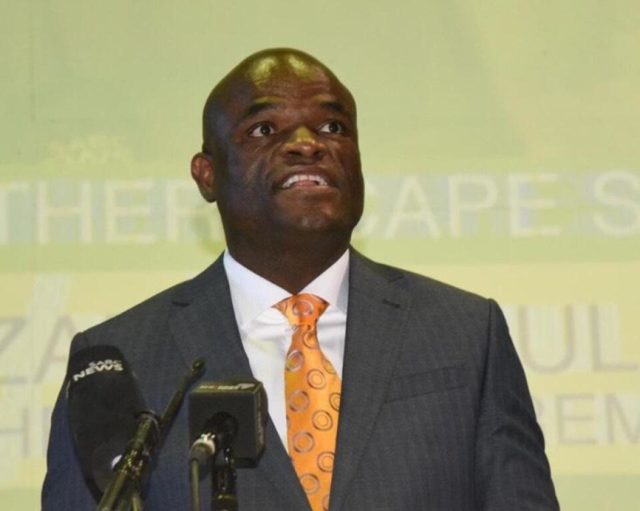“Schools with effective and efficient SGB members are most likely to secure greater success than those with limited parental and community involvement”
THE PREMIER of the Northern Cape, Dr Zamani Saul, has urged parents of children at public schools to participate in the upcoming school governing body (SGB) elections.
Saul and Northern Cape Education MEC, Zolile Monakali, announced the dates and details for the SGB elections during a virtual media conference on Monday.
It was launched under the theme “Re-imagining School Governance Under Complex Conditions” and parents whose details are captured on the department’s admission register will be allowed to run in the elections.
Saul said that SGBs play a crucial role in the effective management of schools and in enhancing education.
“This year’s SGB elections must be held from March 1 to April 30, 2021. The election of members that serve on the SGBs takes place every three years,” said Saul.
“Schools with effective and efficient SGB members are most likely to secure greater success than those with limited parental and community involvement. Creative and resourceful SGBs also play a fundamental role in mobilising scarce resources for education. They are even instrumental in the fight against racism, sexism, xenophobia and all other forms of discrimination and intolerance.”
Saul said this year’s elections will be conducted electronically, as part of the effort to combat the spread of Covid-19.
“This year marks the ninth SGB elections and these elections take place at a time when our country and the world is fighting an invisible enemy, namely Covid-19. As a result, the approach for this year’s SGB elections will also differ from previous years. Schools will decide on the election mode, date, time and venue and communicate this to the respective district offices before February 18, 2021. The department intends to publish information in local newspapers and on community radio stations and social media for parents and guardians to take note of.
“All schools should consider the full-day election mode. Nominations are to be done in writing before the elections and three days before the voting day, the school must communicate with parents who the nominees are. What makes it easier is that the quorum is being determined at the end of the process, before you count the ballots. Therefore, during the day, the school elections team could assess the numbers and send parents messages to come and vote. This mode means parents are able to vote when they drop off their kids, when they pick them up or any time during the course of the day.
“The e-election mode is purely electronic.
“The department is busy finalising the process of service providers that schools could utilise. Schools must have the existing infrastructure to make this possible for maximum parent participation. Alternatively, schools can combine the full-day and e-election modes – to cover parents who do not have data or smart phones.”
Saul said schools with a smaller number of learners can continue to vote in the historic manner. “Small and rural schools with 50 to 100 learners are encouraged to consider utilising the nomination and election meeting mode, with the understanding that not more than 50 parents can be in the school for such a meeting. Normally, the quorum for these schools is between 15 to 30 parents.”
He said that the partnership between SGBs and the government will help address and uproot social challenges faced at some schools.
“We do still have a few governance challenges at some schools. These include, but are in no way limited to, dysfunctionality of certain schools and resorting to self-help, this refers to situations where some SGB members take the law into their own hands. I want to appeal strongly to all SGBs to be part of the solution. Help us to resolve the problems facing education so that we can provide quality education in all our schools, in an equitable manner.”
Saul said that parents who do not have children in public schools are also invited to be part of the nomination process.
“I am often asked whether community members with no children at a school may serve in an SGB. Indeed they can. The SGB may co-opt members with expertise in areas that may benefit the SGB and the school, but these members have no voting rights,” Saul added.
He said the elected SGB members will be equipped with the knowledge on how to conduct their tasks.
“The department will arrange induction workshops for newly-elected governing bodies. This will help the members to familiarise themselves with their roles and responsibilities. It should be noted that school governing bodies operate within a code of conduct. The induction will therefore cover this area quite extensively because we need governing bodies that are going to be part of a solution.
“Also, SGBs are not elected to deal with the day-to-day running of the school, that is the responsibility of the school management team. The SGB’s are responsible for policy issues and management of school finances, ensuring the safety of schools and other broader functions that result in the overall functionality of the school as an institution where quality teaching and learning takes priority.
“Any disruptions of teaching and learning of any class and any school must be avoided at all costs,” Saul stressed.








